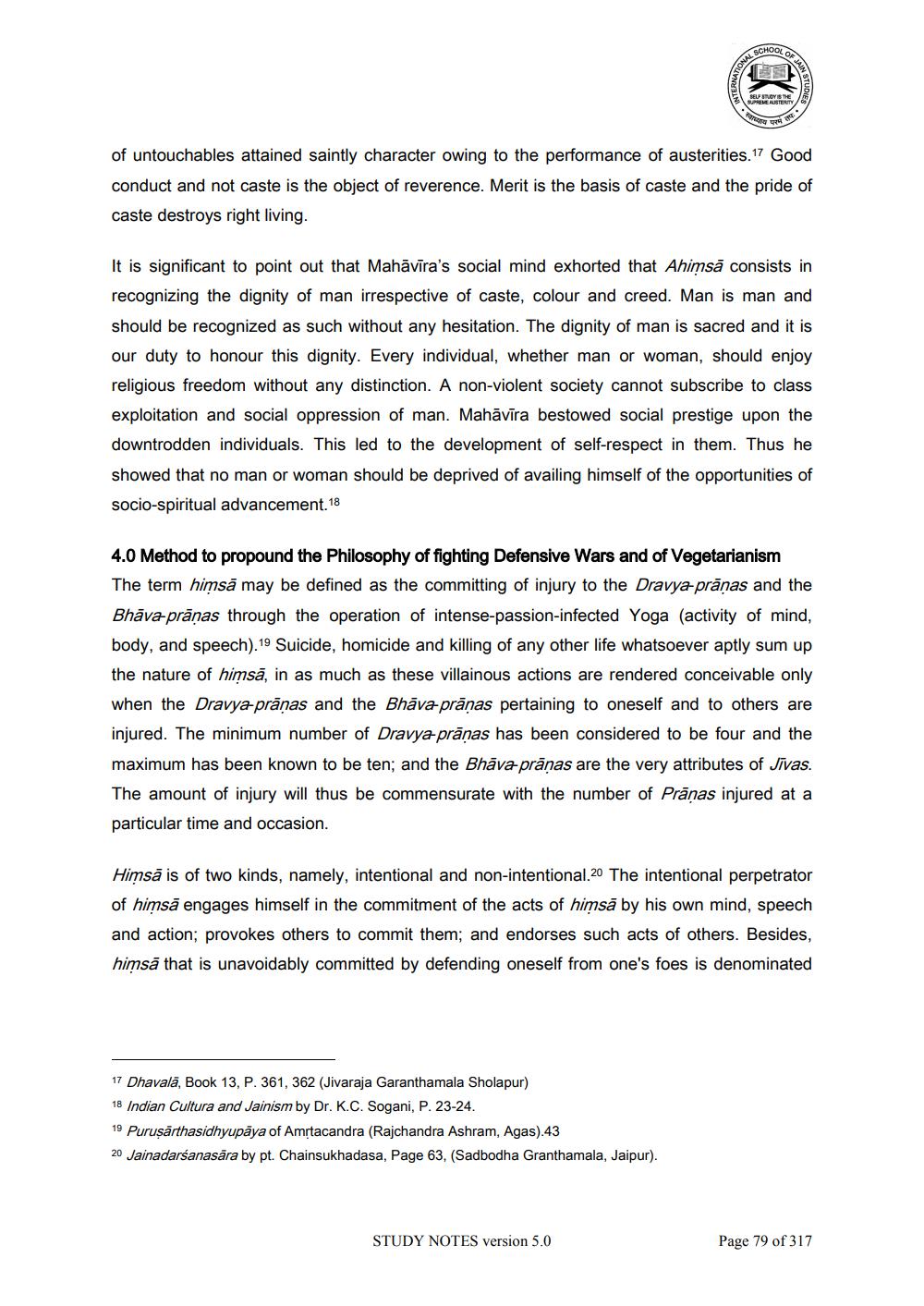________________
of untouchables attained saintly character owing to the performance of austerities.17 Good conduct and not caste is the object of reverence. Merit is the basis of caste and the pride of caste destroys right living.
It is significant to point out that Mahāvīra's social mind exhorted that Ahimsă consists in recognizing the dignity of man irrespective of caste, colour and creed. Man is man and should be recognized as such without any hesitation. The dignity of man is sacred and it is our duty to honour this dignity. Every individual, whether man or woman, should enjoy religious freedom without any distinction. A non-violent society cannot subscribe to class exploitation and social oppression of man. Mahāvīra bestowed social prestige upon the downtrodden individuals. This led to the development of self-respect in them. Thus he showed that no man or woman should be deprived of availing himself of the opportunities of socio-spiritual advancement.18
4.0 Method to propound the Philosophy of fighting Defensive Wars and of Vegetarianism The term himsā may be defined as the committing of injury to the Dravya-prānas and the Bhāva prāņas through the operation of intense-passion-infected Yoga (activity of mind, body, and speech).19 Suicide, homicide and killing of any other life whatsoever aptly sum up the nature of himsā, in as much as these villainous actions are rendered conceivable only when the Dravya prānas and the Bhāva prānas pertaining to oneself and to others are injured. The minimum number of Dravya prānas has been considered to be four and the maximum has been known to be ten; and the Bhava prānas are the very attributes of Jivas. The amount of injury will thus be commensurate with the number of Prāṇas injured at a particular time and occasion.
Himsā is of two kinds, namely, intentional and non-intentional.20 The intentional perpetrator of himsā engages himself in the commitment of the acts of himsā by his own mind, speech and action; provokes others to commit them; and endorses such acts of others. Besides, himsā that is unavoidably committed by defending oneself from one's foes is denominated
17 Dhavalā, Book 13, P. 361, 362 (Jivaraja Garanthamala Sholapur) 18 Indian Cultura and Jainism by Dr. K.C. Sogani, P. 23-24. 19 Puruşārthasidhyupāya of Amrtacandra (Rajchandra Ashram, Agas).43 20 Jainadarśanasāra by pt. Chainsukhadasa, Page 63, (Sadbodha Granthamala, Jaipur).
STUDY NOTES version 5.0
Page 79 of 317




